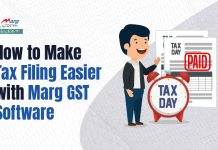The Goods and Services Tax (GST) is a comprehensive indirect tax that was introduced in India on July 1, 2017. The GST has replaced many indirect taxes that were levied by the central and state governments. The GST is a destination-based tax system that aims to simplify the tax structure and improve compliance. In this blog, we will discuss the GST accounting procedures in Haryana.
GST Registration in Haryana:
The GST registration process in Haryana is similar to that of other states in India. Every business that has an annual turnover of more than Rs. 20 lakhs (Rs. 10 lakhs for North-Eastern states) is required to register for GST. The registration process can be done online through the GST portal.
Once the business is registered under GST, it is required to file GST returns on a regular basis. The GST returns are filed online through the GST portal. The returns must be filed by the 20th of every month.
GST Accounting in Haryana:
Under the GST system, every business is required to maintain proper records of all transactions. The records must be maintained in electronic form and must be accessible to the GST authorities. The records must be kept for a period of six years from the date of the transaction.
The following are the key aspects of GST accounting in Haryana:
- Invoicing: Under the GST system, every business is required to issue tax invoices for all sales made. The tax invoice must include details such as the GSTIN of the supplier and the recipient, the date of the invoice, the description of the goods or services, the quantity, the value, and the tax charged.
- Input Tax Credit (ITC): Under the GST system, businesses can claim input tax credit (ITC) for taxes paid on purchases. The ITC can be claimed only if the tax invoice issued by the supplier is valid and the supplier has filed the GST returns. The ITC can be claimed only on the goods or services that are used for business purposes.
- Payment of GST: Under the GST system, every business is required to pay GST on its sales. The GST must be paid by the 20th of every month. The GST payment can be made online through the GST portal.
- Filing of GST returns: Under the GST system, businesses are required to file GST returns on a regular basis. The GST returns must be filed by the 20th of every month. The GST returns must include details such as the sales made, the taxes paid, the ITC claimed, and the GST payable.
In addition to the above-mentioned aspects, there are some other important points to consider in GST accounting in Haryana:
- HSN code: HSN stands for Harmonized System of Nomenclature. Under the GST system, businesses are required to mention the HSN code for the goods or services they are dealing with. The HSN code helps in classifying goods or services for taxation purposes.
- E-way bills: E-way bills are mandatory for the movement of goods worth more than Rs. 50,000. The e-way bill must be generated before the goods are moved from one place to another. The e-way bill contains details such as the name of the consignor, the consignee, the goods, and the vehicle used for transportation.
- Audit: Every business with an annual turnover of more than Rs. 2 crores (Rs. 1 crore for North-Eastern states) is required to get its accounts audited by a chartered accountant or a cost accountant. The audit report must be filed with the GST authorities.
- Refunds: Businesses can claim refunds of the excess taxes paid or the ITC accumulated. The refund application must be filed within two years from the end of the financial year in which the taxes were paid or the ITC was accumulated.
There are also some specific rules and regulations related to GST accounting in Haryana that businesses must follow:
- Composition Scheme: Businesses with a turnover of up to Rs. 1.5 crores can opt for the Composition Scheme under GST. Under this scheme, the businesses are required to pay a fixed percentage of their turnover as GST instead of paying the regular GST. However, businesses under this scheme cannot claim input tax credit.
- Reverse Charge Mechanism: Under the Reverse Charge Mechanism, the recipient of the goods or services is required to pay the GST instead of the supplier. This mechanism is applicable for certain goods and services such as legal services, transport services, and goods purchased from unregistered suppliers.
- TDS and TCS: Under GST, the government has introduced Tax Deduction at Source (TDS) and Tax Collection at Source (TCS) provisions. Businesses are required to deduct TDS when making payments to suppliers or service providers, and deposit the same with the government. E-commerce operators are required to collect TCS on the value of goods sold through their platform and deposit the same with the government.
- Annual Return: Every registered business under GST is required to file an annual return in Form GSTR-9. The annual return must be filed by December 31st of the subsequent financial year. The annual return must include details of all outward and inward supplies, GST paid and collected, input tax credit claimed, and any other relevant details.
Conclusion
businesses operating in Haryana must comply with the specific rules and regulations related to GST accounting. These rules include the Composition Scheme, Reverse Charge Mechanism, TDS and TCS provisions, and filing of annual returns. By following these rules, businesses can avoid penalties and fines and maintain proper records of their transactions.
Other Related Blogs: Section 144B Income Tax Act





